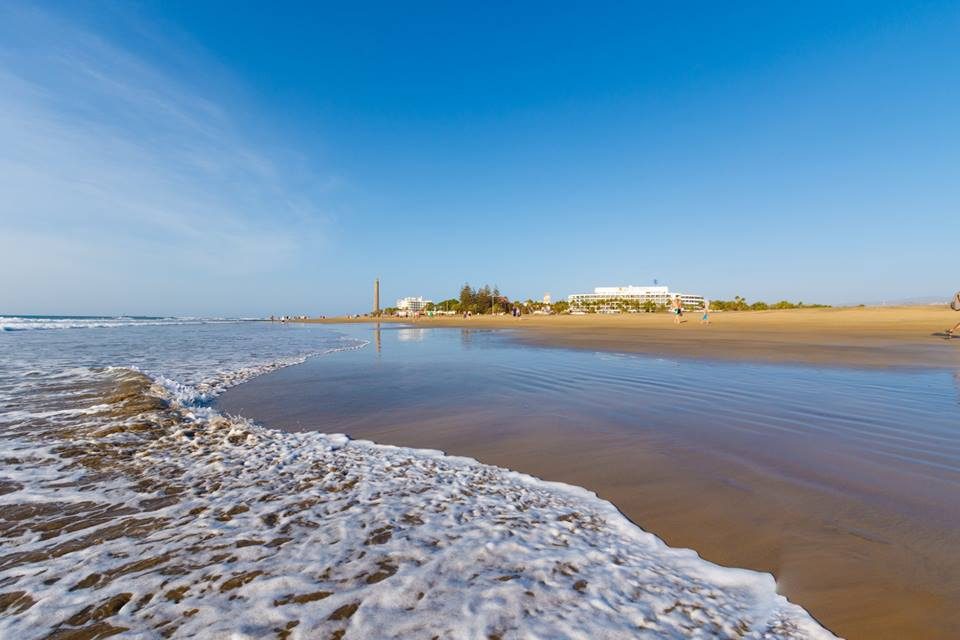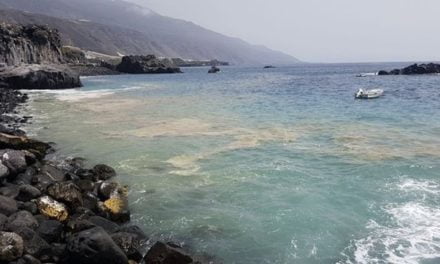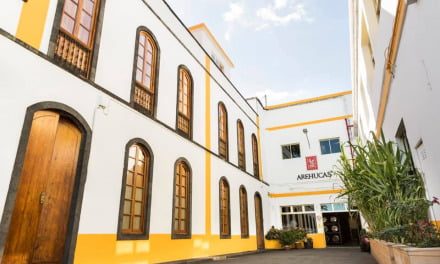Simply put, we have a long road to travel in The Canary Islands. Anyone hanging on to the hope of the repercussions of 2020 being short term may wish to readjust and start to work on not simply how they might return to how things were before, but also how they are going to deal with the sustained economic impacts of low tourism, high unemployment and difficulties in generating income. We can get through this, but perhaps not all of us will. Economists are warning that we have not even reached the bottom of the decline, and until we do we won’t really know what is needed to get us back on our feet. We need to look to each other, and be able to count on each other, for support, and we need to help who we can to try to ensure we do not start to witness the worst ravages of extreme poverty within our communities growing in number and negative consequences. 2020 is not a year for the faint of heart, nor likely will next year or the year after. These are tumultuous times, only level heads and careful direct action will help us to recover any semblance of the life we knew before, perhaps this is even a much needed opportunity for The Canary Islands to reinvent itself as something more than just mass tourism, all inclusive beach resorts, and stack-em and pack-em package deals. We are going to need to focus not only on ourselves, but how we treat others, and how the world sees us. We need each other’s cooperation and good will now, more than ever. Good luck. Who is it we want to be? There are no easy answers, but we are blessed to be riding out a global pandemic in one of the most beautiful places on earth. Let’s see what we can do to shape the odds and improve our chances of a steady return to good health and a bright future.
Miguel Ángel Sánchez Martín, dean of the College of Economists in Santa Cruz de Tenerife, this weekend warned “We have not hit bottom, and until we hit bottom we will not know with certainty which keys to play.” He was describing the magnitude of the challenge ahead of us, in his expert opinion, that the Canary Islands face. Despite the extremely hard blow that the coronavirus has dealt to the regional economy, there are many months still to come where GDP will continue to fall.
How Long? Economists are warning of the need to think carefully
Sánchez Martín thinks that if part of the winter tourist season can be saved, the Archipelago’s economy will start to bottom out before the end of the year; if not, the free fall will continue for at least another six months, that is to say until at least mid-2021. Until the Islands have hit rock bottom, we can’t start to look at real sustainable recovery, how serious the problem is cannot be truly understood before that.
Short and medium-term scenarios depend on one factor above any other: whether or not Spain and the Canary Islands are capable of controlling the outbreaks of Covid-19.
If the region manages to control infections, Germany and the United Kingdom will agree to remove the Archipelago from their black lists of territories to which they advise against traveling due to the risk of contracting the disease. If this happens, “we will regain some activity”, he told La Provincia, similar to what happened after the end of the state of emergency, but in no case would we return quickly to 100% activity, far from it.
José Miguel González is another one of the economists warning of the need for prudence and pragmatism, a Consulting Director for the company Corporación 5 and former Employment Director General for the Canary Islands Government, says that the fall in Gross Domestic Product (GDP) will be at least 25% even when foreign tourists begin to arrive, hopefully, towards the end of the year. It would at least provide some breathing room. If the islands do not manage to control the number of cases of coronavirus and cannot provide health guarantees to countries of origin, that send tourists, then we will continue to suffer worse and worse consequences. So if we cannot revive, at least in part, our tourism industry, our main engine for the regional economy, it would be as much as saying that we have not been able to get control of the coronavirus outbreaks, and so economists are warning that we would likely find ourselves in double danger, with a crashing economy and uncontrolled infections.
European Aid is Expected
Europe has promised to send financial aid, which many hope will arrive before October, but it is not clear when it can be expected
According to González the fundamental supports holding the current situation together are questions around whether the public administration, the governments, will continue to maintain current levels of economic aid or not. Should Spain’s job retention “furlough” scheme, the temporary employment regulation files (ERTEs) continue due to force majeure? Will soft credit lines continue? Can moratoriums on the payment of taxes and fees be maintained? … In short, whether or not the State, the Regional Autonomous Community, Island Cabildos and local municipal town councils have or do not have enough muscle to continue financing these inordinate increases in public spending.
It is true that Spain is going to receive €72.5 billion in non-refundable funds from Europe, aid that Spain will not have to repay, so as to alleviate the worst consequences of the pandemic on society and the economy, but it is equally true that only a part, €12.4 billion, is intended to deal with the blow in the short term. The rest is linked to the implementation of reforms and investment plans for economic transformation and growth, so the autonomies will have to present projects to gain access to any part of the rest of the money.
The Canary Islands aspires to bag somewhere in the region of €3.57 billion, slightly more than €2 billion of it between 2021 and 2023, but at the moment this is still only an aspiration. Money will arrive from Brussels, but there are two large unknowns to be resolved: when it will arrive and how much will arrive. Until then, state funds are essential, and for this the approval of new general budgets will be vital. Spanish Prime Minister Pedro Sánchez still does not have sufficient support to be able to assure these budgets are passed. In short, the state and regional treasury will not be able give much more assistance until the money from Europe can be used, and for this it is necessary to approve the budgets beforehand. Be that as it may, the double scenario is clear: without tourism but maintaining current aid levels, GDP would continue to fall by 25%; without tourism and without the current volume of aid, the fall could already reach 35% or more.
“In this last scenario, not even the companies that wanted to maintain employment could do so; it would be an invitation… [for many businesses] …to file voluntary bankruptcy ”, advises Gonzalez.
Full recovery of tourism will likely take twice as long as the decline lasts
Though economists are warning of the need to tread carefully now they agree that eventually the economic situation will improve, of course, but however we manage it we will not see the way out of the crisis “for three, four or five years,” says Sánchez Martín. Experts consulted by La Provincia seem to agree on this: either a V-shaped recovery (in which recovery is as fast and as intense as the depressive phase) or even a U-shaped recovery (where between the depression and recovery phases there is a plateau period) will not happen any time soon. On the contrary, for us to get past the coronavirus crisis, that is, to return the GDP of around €47 billion a year with which The Canary Islands closed 2019, we will have to be planning in terms of five years or longer.













